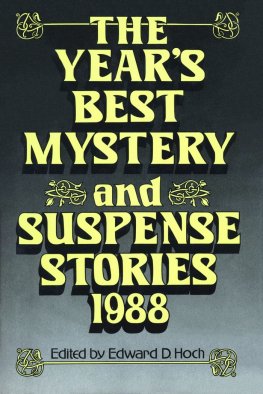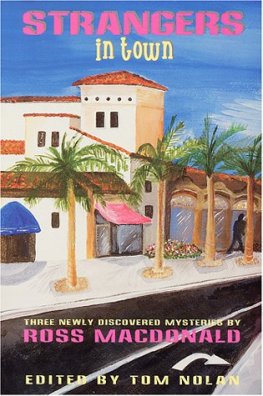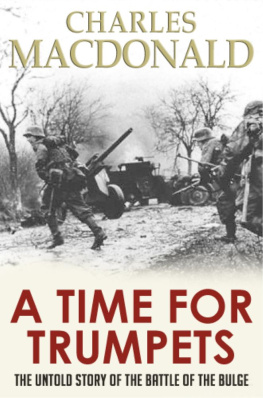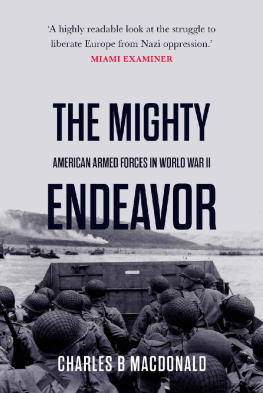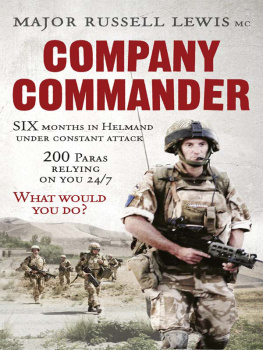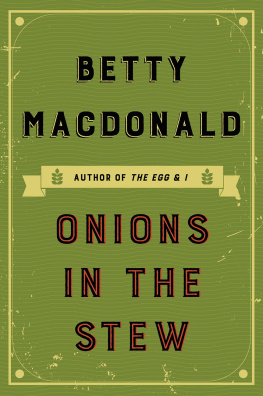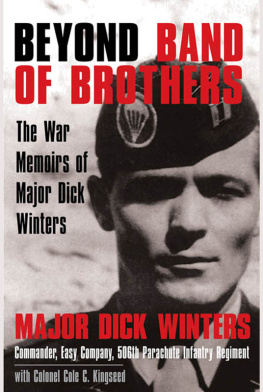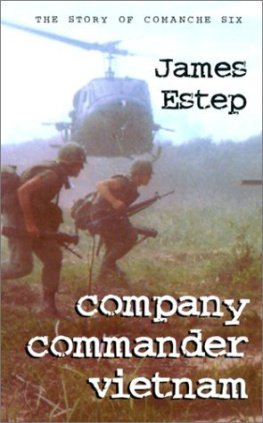Company Commander
Charles B. MacDonald
Copyright Charles B. MacDonald 1947
The right of Charles B. MacDonald to be identified as the author of this work has been asserted by him in accordance with the Copyright, Designs and Patents Act, 1988.
First published in the United Kingdom in 1947 by Burford Books.
This edition published in 2015 by Endeavour Press Ltd.
In humble appreciation to the combat infantrymen, those who live and those who died of companies I and G, 23d infantry and their counterparts in the other infantry regiments of the united states army, who contributed so much to victory in World War II
Table of Contents
Introduction
Memoirs of politics and wars usually become less interesting with the passing of time. Company Commander is an exception to this rule. The book was published in 1947, soon after the close of World War II, and it remained in print, more or less continuously, for over 35 years. It is a book which speaks to the younger generations with almost the same immediacy as it did to the generation of the Second World War.
Many of the elements of the conventional war narrative are missing from Company Commander . There is no account of the authors childhood and family. We are not told how the author entered the Army, how he was trained, or even how he became a company commander at age 20. MacDonald s only subject is war and men at war, the dread, gnawing daily diet of war. As one of MacDonalds men tells a reporter who is trying to do a human interest story for the folks back home: tell them its too damn serious over here to be talking about hot dogs and baked beans and things were missing. Tell them its hell and tell them there are men getting killed and wounded every minute, and theyre miserable and theyre suffering...Tell them its rough. Tell them its rough serious business. Although MacDonald recalls being slightly embarrassed by this outburst, his objective in writing his book was probably to convey a similar message to readers who had seen war only in newsreels and movies. There is almost nothing in the book about generals, strategy, or the big picture. Instead, MacDonald concentrates on telling his story, an almost day-by-day account of the men who actually fight wars. MacDonalds experience spans three distinct periods in the Allied campaigns against Germany in 1944-45: The American penetration of the Siegfried Line on the western borders of Germany, the Battle of the Bulge, and the final offensives leading to the collapse of German forces in the West. By the time that MacDonald joined his company in October 1944, the Germans had already suffered disastrous reverses. Yet German forces had begun to regroup and receive reinforcements and their resistance stiffened. MacDonalds first experience as company commander was in what his battalion commander called a good assignment: holding a defensive position on a quiet sector of the Siegfried Line. One of the strengths of the book is to make clear just how uncomfortable, debilitating, terrifying and dangerous the routine of life in this quiet sector (where it was normally unsafe to cross any open ground in daylight) could be.
Two months later, MacDonalds Division was hastily shifted from an attack against the Ruhr dams and sent to block one wing of the great German offensive which became known as the Battle of the Bulge. No one has described this more clearly and succinctly than MacDonald himself, in his later popular history of the U.S. Army in the European Theater, The Mighty Endeavor , published in 1969. MacDonalds division, the 2d Division,
executed a highly complex maneuver that probably few but an experienced division could have pulled off. Protected by the disintegrating screen of the 99th Division and its own reserve regiment, the 2d Division in the face of the enemy executed the childs maneuver of skinning the cat by pulling its most advanced battalions from the attack on the Ruhr Dams. Through others in the rear...the battalions then wheeled from column to organize a defense line in darkness under intense enemy attack.
With the help of the 99th Division, the 2nd Division slammed the door on the northern prong of the German offensive. In Company Commander we see all this through the eyes of the men of a rifle company hastily dug into the snow, facing an attack by German Tiger tanks.
In the final section, on the collapse of German resistance, MacDonald shows how menacing and dangerous even the disintegrating German Army of March and April 1945 could appear to a rifle company at the sharp end of the American advance.
Charles MacDonald went on to a distinguished career as a historian, writing two of the U.S. Armys official histories of the European campaign and serving as co-author of a third, as well as widely read popular books on the Battle of the Bulge and the Huertgen Forest. His The Mighty Endeavor : American Armed Forces in the European Theater in World War II , though in some respects superseded by later scholarship, remains the clearest, most lucid and most readable account of that war.
I first met Charles MacDonald in Vietnam in 1969, when he made an official visit to I Corps as the Armys Deputy Chief Historian. Even without that imposing title, he was well known to professional military men, many of whom had read, or at least heard about, Company Commander Our chief of staff was so impressed that he decided to dispatch one of the two American cars owned by the Marines in Vietnam to meet MacDonald at the Danang air base.
After a hasty wash and wax in the motor pool, the much-prized car met MacDonald and his party at the airport. After the visitors were smartly ushered into their vehicles, it was discovered that the highly polished trunk of the car refused to open. After a few futile attempts, a consensus was reached that the damn thing just wouldnt open. MacDonald s baggage was still stacked neatly beside the car. The escort officer glanced at his watch then signaled the driver. Take care of the luggage, corporal, he called as they drove off. Yes sir! I replied, then added a few more phrases under my breath.
My second meeting with MacDonald occurred a few years later when he was assembling the team of historians, mostly recent returnees from Vietnam, who would write the Armys history of that war. By then it was abundantly clear that Vietnam would not be the Armys finest hour and one might have expected the generals to be less than enthusiastic about the project. MacDonald, however, had gained the complete trust and confidence of General William Westmoreland, commander of U.S. forces in Vietnam and subsequently Army Chief of Staff. As a result, highly sensitive Army records were made available to MacDonalds Southeast Asia Branch of the Army Center of Military History and money was found in the increasingly tight Army budget to hire additional professional historians with Vietnam experience.
In civilian life as in the military, MacDonald was a natural leader who never had to resort to bluffing, wheedling, or bullying. As later generations would say, He had no bullshit. The one thing he could not abide was poor writing and he spent long hours trying to help his authors make their sows ears into silk purses.
Charles MacDonald retired as a Colonel in the Army Reserve and as a GS-15, the governments highest civilian rank. He died in 1990.
Ronald H. Spector
September, 1999
[This introduction was written for the 1999 edition.]
Preface
The characters in this story are not pretty characters. They are not even heroic, if lack of fear is a requisite for heroism. They are cold, dirty, rough, frightened, miserable characters: GIs, Johnny Doughboys, dogfaces, footsloggers, poor bloody infantry, or, as they like to call themselves, combat infantrymen. But they win wars.
They are men from Companies I and G, 23d Infantry, but they might be men from Companies A and K, 16th Infantry, or they might be men from Companies C and E, 254th Infantry. For their stories are relatively the same. Some may have fought the Germans longer than others, or some may have fought the Germans less. For all it was an eternity.
Next page

